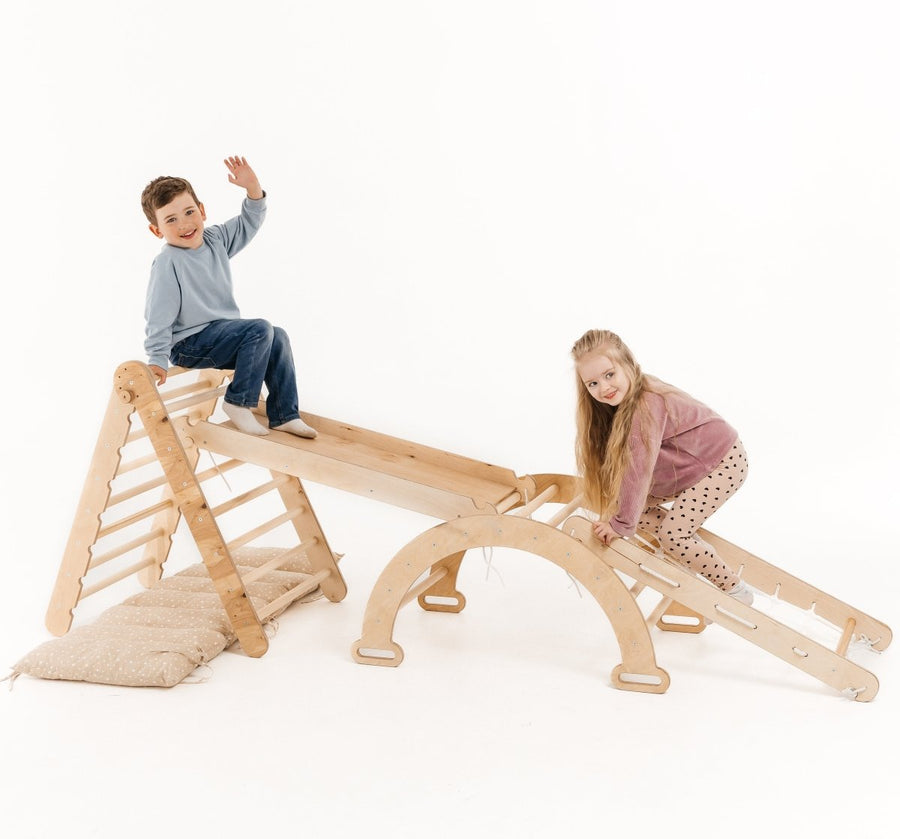The Marvelous Montessori Environment: Unleashing the Potential of Children's Development
Hello there, dear parents! Today, let's embark on an exciting journey into the captivating world of the Montessori environment and explore its remarkable role in shaping our children's development. Step into a realm where learning becomes an adventure and where children thrive in an environment designed to nurture their innate abilities and curiosity.
Unveiling the Montessori Philosophy
"Education is a natural process carried out by the child and is not acquired by listening to words but by experiences in the environment." – Maria Montessori
The Montessori approach is rooted in the belief that children possess an innate drive for learning and self-discovery. The environment plays a pivotal role in this process, as it becomes a carefully crafted space that fosters independence, creativity, and a love for learning. Maria Montessori, an influential figure in education, believed that children flourish when provided with an environment that meets their developmental needs.
Designing the Optimal Learning Space
"An environment that is attractive and orderly encourages the child to be organized and to establish internal order." – Maria Montessori
Step into a Montessori classroom, and you'll be greeted by an atmosphere that reflects harmony and purpose. The environment is meticulously designed to support the child's growth and exploration. Furniture and materials are arranged to promote freedom of movement, accessibility, and a sense of order. Brightly colored objects, nature-inspired elements, and natural materials stimulate the senses, creating an environment that is both inviting and conducive to learning.
Practical Life Activities: Learning through Experience
"Education is a natural process carried out by the child and is not acquired by listening to words but by experiences in the environment." – Maria Montessori
In the Montessori environment, practical life activities take center stage. These activities, such as pouring water, polishing objects, or preparing food, allow children to develop concentration, coordination, and independence. Through hands-on experiences, they acquire essential life skills and cultivate a sense of responsibility and self-confidence.
Sensorial Education: Engaging the Senses
"The senses, being explorers of the world, open the way to knowledge." – Maria Montessori
Montessori materials for sensorial education are carefully designed to refine and heighten the senses. By engaging in activities that involve touch, taste, smell, sight, and sound, children develop their ability to observe, classify, and discriminate. The pink tower, the cylinder blocks, and other intriguing materials awaken their curiosity and lay the foundation for later mathematical and scientific explorations.
Language Development: Nurturing Little Wordsmiths
"The child is both a hope and a promise for mankind." – Maria Montessori
Language development blossoms in the Montessori environment. Conversations, storytelling, and exposure to rich vocabulary ignite children's love for words and communication. Montessori materials, such as the sandpaper letters and the movable alphabet, engage their senses and enable them to explore sounds, letters, and eventually, the joy of reading and writing.
Mathematics and Logical Thinking: Unlocking the World of Numbers
"Mathematics is the language of nature." – Maria Montessori
Through hands-on activities and materials, Montessori mathematics education ignites a passion for numbers and logical thinking. Children progress from concrete materials, such as the golden beads and number rods, to abstract concepts, grasping the foundations of arithmetic, geometry, and problem-solving. The Montessori approach ensures that mathematics becomes an exciting adventure rather than a daunting task.
Social and Emotional Development: Growing Compassionate Souls
"The child is capable of developing and giving us tangible proof of the possibility of a better humanity." – Maria Montessori
The Montessori environment cultivates a sense of community, empathy, and respect. Mixed-age classrooms foster collaboration, as older children mentor younger ones, and younger ones learn from their peers. Conflict resolution, grace, and courtesy lessons create a foundation for positive social interactions. In this nurturing environment, children develop emotional intelligence, learn to appreciate diversity, and become compassionate individuals.
Conclusion: As we conclude our enlightening journey through the Montessori environment, we recognize the immense impact it has on our children's development. From practical life activities to sensorial exploration, language and mathematical adventures, and the nurturing of social and emotional intelligence, the Montessori environment empowers our children to reach their full potential.
Remember, dear parents, the Montessori environment is not limited to the classroom. You can create elements of it within your homes, fostering an atmosphere that supports your child's growth and development.
So, let's embark on this exciting adventure, nurturing the marvels within our children, as we embrace the profound role of the Montessori environment in their journey towards becoming confident, compassionate, and lifelong learners.
References
- American Montessori Society: www.amshq.org
- Montessori Education: www.montessorieducation.com
- North American Montessori Teachers' Association: www.montessori-namta.org






Hinterlassen Sie einen Kommentar